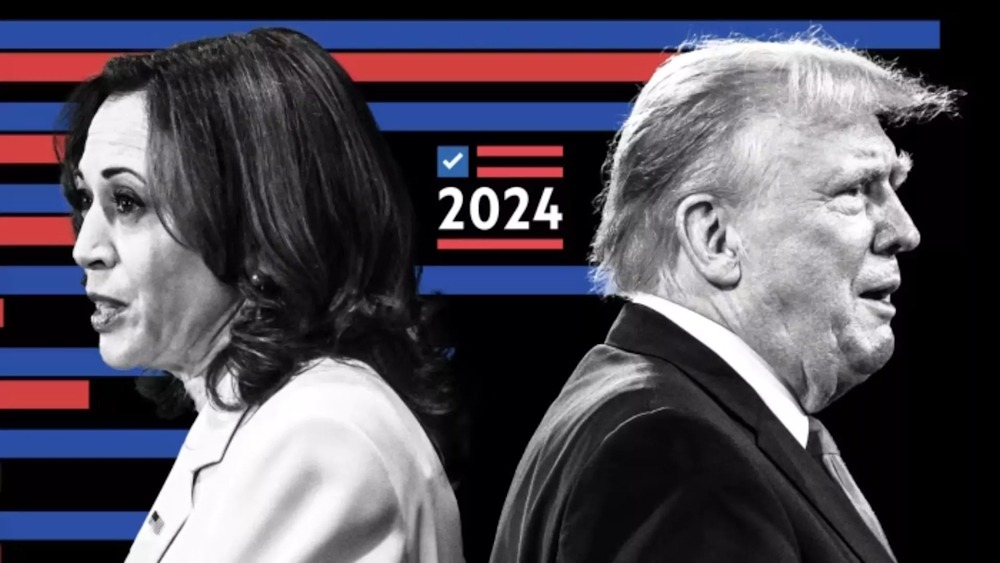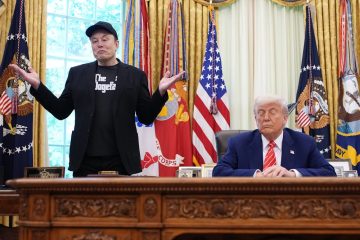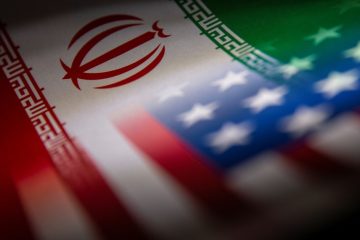Hundreds of events and billions of dollars, a divided country decides

A polarized and apprehensive America approaches the polls on Tuesday to finalize a presidential election shaped by inflation and characterized by unprecedented upheaval, featuring a late-summer candidate exchange and two assassination attempts. Following extensive advertising expenditures and a significant volume of jet fuel utilized for candidate transportation to numerous campaign events nationwide, the concluding polls indicated a tightly contested race between Democrat Kamala Harris and Republican Donald Trump across seven pivotal battleground states. The political landscape is marked by a fierce contest for congressional dominance, as analysts suggest that Republicans are well-positioned to secure a majority in the U.S. Senate. The Republican Party’s slender grip on the House of Representatives may be jeopardized, as the outcome of the chamber is anticipated to hinge on a mere handful of seats.
Trump, who has yet to acknowledge his defeat in 2020 and has propagated unfounded allegations of electoral fraud, has indicated confidence in overcoming Harris while simultaneously casting aspersions on the integrity of this year’s voting process. Harris’s team anticipates that Trump will once again declare victory ahead of time, mirroring his actions from 2020.
Political analysts suggest that a definitive victor may remain elusive on Election Day, should the contest prove as closely contested as current polling indicates. This may result in an extended tallying process and possible legal disputes, as both sides have mobilized legal teams to address electoral concerns. The latest polling data indicates a tightly contested race between Kamala Harris and Donald Trump in seven key battleground states.
Harris’s team has expressed a measured sense of optimism as the race approaches its conclusion. Campaign chair Jen O’Malley Dillon informed reporters that the campaign finds encouragement in the voter organizing initiatives within key battleground states and the widespread grassroots enthusiasm observed across the board. On the campaign trail just before Election Day, Harris addressed a gathering in Allentown, Pa., stating, “We must conclude with strength.” She asserted, “And let there be no doubt, victory will be ours.”
Trump’s campaign has expressed optimism, citing polling data that indicates their candidate is in a more advantageous position as Election Day approaches compared to his previous attempts in 2016 and 2020. The Republican Party has aligned with Democrats in supporting early voting, enabling a more concentrated effort to mobilize their remaining electorate for the polls on Tuesday. However, Trump has complicated his final message through a succession of avoidable missteps that reveal his weaknesses. He has employed aggressive rhetoric aimed at the media and former Representative Liz Cheney, a Republican opposed to Trump, thereby highlighting some of his most significant vulnerabilities. A late October national poll conducted by The Wall Street Journal revealed that a greater number of voters believed Harris possessed the appropriate temperament for the office compared to Trump.
On Monday in North Carolina, Trump reiterated several of his longstanding grievances: He referred to Nancy Pelosi, the former House speaker, as “crazy as a bedbug” and recalled her act of shredding his final State of the Union speech in 2020. “Recall how she tore up the paper behind me?” “She could have faced incarceration for that,” Trump remarked. Donald Trump has complicated his final message through a succession of avoidable missteps.
Pennsylvania, possessing 19 electoral votes, stands as the most significant battleground in the electoral landscape. For Harris, securing victories in Wisconsin, Michigan, and Pennsylvania is likely the most viable path to the White House. The three states have consistently supported the Democratic Party since 1992, apart from the 2016 election when Trump secured their votes.
If elected, Harris would become the nation’s inaugural female president, marking a historic milestone as the first Black woman and the first individual of Indian descent to hold the office. If Trump were to secure victory, he would become the first president since Grover Cleveland in 1892 to achieve nonconsecutive terms in office. A significant gender divide may influence the electoral results, as women predominantly support Harris while men exhibit a stronger preference for Trump. The recent days have showcased a notable dynamic, with the vice president underscoring the importance of abortion rights, in stark contrast to the former president’s reinforcement of a robust rhetoric, asserting his commitment to protecting women, irrespective of their preferences.
Following the Supreme Court’s decision to overturn Roe v. Wade in 2022, women have been instrumental in securing a number of Democratic victories in various nonpresidential elections. Harris has pursued a vigorous campaign focused on abortion rights, an issue that surveys indicate resonates strongly with female voters. By Monday, over 78 million individuals had submitted their votes either through early in-person casting or mail-in ballots. According to data from the University of Florida’s Election Lab, this encompasses 17.9 million votes cast across the seven battleground states.
Americans approached the polls with a sense of discontent, even in the face of low unemployment rates. In the last survey conducted by the Wall Street Journal prior to the election, nearly two-thirds of voters expressed the belief that the country is moving in the wrong direction. Although inflation rates have been declining, the lingering effects have significantly bolstered Trump’s position while adversely impacting Harris.Harris aimed to convey a sense of optimism in the final days, steering clear of references to Trump and instead focusing on the concept of charting a “new way forward.” Trump reiterated grievances regarding his 2020 defeat and once more adopted aggressive language, suggesting he would not object to being shot at “through the fake news.” The Harris campaign highlighted the magnitude of their voter mobilization initiative, presenting it as a more extensive and sophisticated operation compared to Trump’s, which is predominantly managed by external organizations. As of Monday, over 78 million individuals had submitted either an early in-person or mail-in ballot.
Harris and Trump have engaged in a contest to position themselves as agents of change, yet neither possesses an unblemished claim to that title. Harris characterized Trump’s candidacy as regressive, leveraging his identity as a one-term former president. He leveraged her position as the second-in-command in the widely criticized Biden administration to portray her as unlikely to deviate from his established record. Since Harris assumed the nomination in July, after President Biden withdrew from the race, she has positioned herself as a catalyst for generational change, highlighting her age of 60 in contrast to Trump’s 78. She concentrated significantly on economic initiatives designed to reduce prices, alongside a vigorous promotion of abortion rights. She has contended that Trump represents a danger to American democracy. Her campaign has encountered challenges amid a populace that is profoundly discontented with inflation and the trajectory of the nation.
During his resurgence campaign, Trump has underscored the issue of illegal immigration while advocating for an economic strategy centered on increasing tariffs to gain leverage over other countries in matters of trade and foreign relations. The campaign has been characterized by crude and disparaging rhetoric. Trump has attributed crime to immigrants, vowing to implement a large-scale deportation initiative should he secure election. Harris has committed to implementing stricter asylum restrictions compared to Biden, aiming to counter Trump’s assertion that her stance on the matter is excessively liberal.
The Democrats maintained a financial edge in the contest, mirroring the situation during Trump’s victory in 2016. However, he reaped the rewards of a significant late-stage investment in both time and capital from Elon Musk. The chief executive of Tesla, who aligned with Trump during the campaign, has contributed a minimum of $118 million and is anticipated to assume a position assisting the new administration in reducing government expenditures should Trump secure election.









